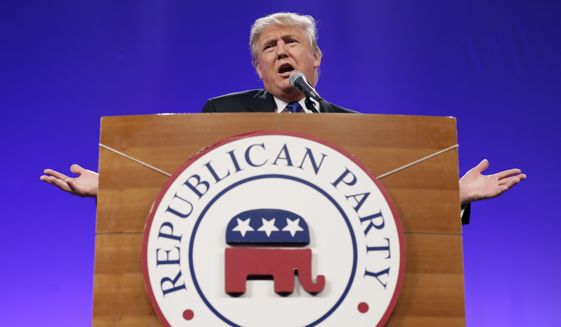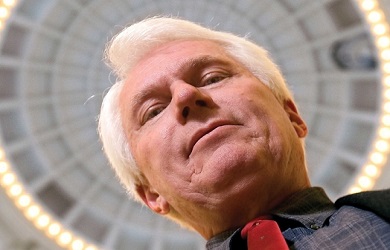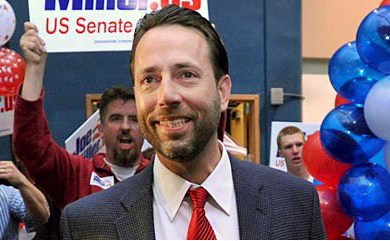Mitt Romney continues to pick up endorsements and support from various right-wing leaders – the most recent being Paul Weyrich – and is working hard to establish himself as the candidate of choice for those who just cannot stomach the idea of supporting Rudy Giuliani. In fact, that seems to be the primary reason Weyrich is even backing Romney: “I’m not for Giuliani. I want to try to stop him from getting the nomination.”
But while he is slowly winning over the leaders of the right-wing establishment, the rank and file voters are still leery of, if not openly hostile to, his Mormon faith. As Salon reported yesterday:
The Romney campaign, which has aggressively courted religious voters, is well aware of the problem. Romney has found himself, by dint of his personal faith, in the middle of a long-running competition between two rival evangelical faiths, each claiming the true word of God in the fight for converts. “It’s Pepsi vs. Coke,” said one Romney campaign aide, describing the differences between evangelical Protestants and Mormons. “But sometimes Pepsi and Coke have to team up to stop Starbucks from taking over the market.” Starbucks, of course, represents secular America, which favors gay marriage, legal abortion and the minimization of religion in public life.
Romney, like Giuliani, appears to hope that he can win over these voters by pledging to nominate right-wing ideologues to the Supreme Court, which is just what he promised when speaking yesterday before the Nova Southeastern University Law School’s chapter of the Federalist Society:
Republican presidential candidate Mitt Romney, speaking in Davie, said his commitment to appointing conservative judges in the mold of Antonin Scalia and Clarence Thomas would help him correct the nation’s direction.
To reinforce this pledge, the Romney campaign even trotted out two members of his Advisory Committee on the Constitution and the Courts to make the case for him in the pages of The National Review:
As the addition of Chief Justice Roberts and Justice Alito to the Supreme Court has demonstrated, judicial appointments can be among a president’s most lasting legacies. The judges a president appoints will typically serve well beyond his term of office, interpreting our laws and Constitution for decades to follow. The next president may have the opportunity to appoint at least one justice to the Supreme Court and, like any new administration, will surely face a large number of courts-of-appeal and district-court vacancies.
For that reason, it is critically important to consider what type of individual a presidential candidate would nominate to the bench. We are confident that if elected as president, Governor Romney would appoint individuals to the federal courts who respect the appropriate role of the judiciary in our democratic system.
But as rival Fred Thompson is pointing out, like many of Romney’s pledges, his record on this point doesn’t match his current rhetoric:
Of the 36 lawyers Romney nominated, 23 were registered Democrats or independents who donated to Democratic candidates or voted in Democratic primaries, according to a Boston Globe analysis that was circulated by rival Fred Thompson. Two appointees supported expanding gay rights.
As we noted earlier, such inconsistencies do not appear to be of much concern to many on the Right, because such flip-flopping only makes Romney more beholden to them – or, as Weyrich put it:
I think [Romney] is somebody who is rushing toward the movement trying to present himself as a conservative and in some ways it’s more useful to have somebody like that.








